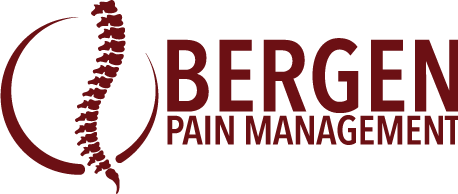Mastering Comfort: Insights from a Back Pain Specialist Doctor
Here at Bergen Pain Management, your comfort is our goal; and while we can’t make you a back pain specialist doctor, we can certainly make you a back pain specialist.
The first step you can take to mastering your comfort and becoming a back pain specialist, so to speak, is identifying the source of your pain and discomfort. Specifically, there are five types of pain you need to watch out for the most. If you’re experiencing any of these, it’s time to take action:
- Persistent or Chronic Pain: Back pain that persists for more than a few weeks or becomes chronic in nature may indicate an underlying issue requiring medical attention.
- Radiating Pain: Pain that radiates from the back into the legs, arms, or other areas of the body may suggest nerve compression or irritation, such as herniated discs or spinal stenosis.
- Sharp or Shooting Pain: Sharp, shooting, or stabbing pain that occurs suddenly or with specific movements could be indicative of nerve impingement, muscle strain, or other structural issues.
- Pain at Rest or Night Pain: Back pain that worsens at rest or interferes with sleep may indicate a more serious condition, such as inflammatory arthritis or spinal tumors.
- Numbness or Tingling: Sensations of numbness, tingling, or weakness in the extremities, particularly when associated with back pain, may suggest nerve involvement.
And the second step is to think back and try to figure out what caused your pain or discomfort in the first place. After that, we’ll discuss whether you need to see a professional.
What causes back pain in the first place?
Whether it’s something you’ve seemingly lived with your entire life or just started impacting you, back pain can feel debilitating and all-consuming. It’s important to start with identifying what caused your back pain in the first. Once you do that, whether on your own or with the help of a back pain specialist doctor, you can take the first steps to a healthier, pain-free life.
To help with this, we gathered the most common causes of back pain we see in our office:
- Muscle Strain: Overexertion or sudden movements can lead to muscle strain, particularly in the lower back, causing discomfort and pain.
- Poor Posture: Prolonged periods of sitting or standing with improper posture can strain your back muscles and spine, leading to pain.
- Traumatic Injury: Accidents, falls, or trauma to your back can cause fractures, sprains, or other injuries leading to acute or chronic back pain. Left untreated, this only gets worse.
- Lifestyle Factors: Obesity, lack of exercise, and smoking can contribute to back pain by weakening muscles, promoting disc degeneration, or impairing circulation.
- Psychological Factors: Stress, anxiety, and depression can also exacerbate back pain by increasing muscle tension and perception of pain.
These ones you might need the help of a back pain specialist doctor to diagnose
And we separated these ones because they might be a little harder for you to diagnose on your own. It’s obvious whether you’ve strained a muscle or suffered a traumatic injury. Not so much if you have a herniated disc or spinal stenosis:
- Herniated Disc: When the soft inner material of a spinal disc protrudes through the tough outer layer, it can irritate nearby nerves, resulting in back pain.
- Degenerative Disc Disease: Over time, the discs between your vertebrae can degenerate, causing instability and potential nerve irritation, leading to back pain.
- Spinal Stenosis: Or the narrowing of your spinal canal, often due to aging or degenerative changes, which can compress your spinal cord and nerves, resulting in pain.
- Osteoarthritis: Degeneration of the cartilage in the joints of your spine can lead to osteoarthritis, causing pain, stiffness, and reduced mobility.
- Scoliosis: This abnormal curvature of the spine, can cause uneven pressure on your vertebrae and surrounding muscles, resulting in back pain.
So, can you tell whether you have any of these? If not, that’s perfectly fine. As we said, you might need a specialist or doctor to help.
How to tell if you need a doctor
If you suffer from a herniated disc, degenerative disease, spinal stenosis, osteoarthritis, or scoliosis, you must seek treatment. In fact, if you suffer from any of the latter, you NEED a doctor.
To help point you in the right direction, we’ve put together some mini self-assessments to help narrow down what might be affecting you the most:
Herniated Disc:
- Do you experience shooting pain, numbness, or tingling that radiates down one or both legs?
- Is it aggravated by certain movements or positions, such as bending forward or sitting?
- Have you noticed weakness or decreased sensation in certain areas of your legs or feet?
Degenerative Disc Disease:
- Do you experience pain in your lower back that worsens with activity and improves with rest?
- Have you noticed a decrease in your flexibility or range of motion, particularly in the lower back?
- Do you experience stiffness in the morning that improves throughout the day?
Spinal Stenosis:
- Do you experience pain, numbness, or weakness in your legs when walking or standing
- Does leaning forward or sitting down alleviate your leg symptoms?
- Have you noticed a decrease in your balance or coordination, particularly when walking?
Osteoarthritis:
- Do you experience pain in the joints of your spine with activity that improves with rest?
- Have you noticed decreased mobility in your spine after periods of inactivity?
- Do you experience joint swelling or tenderness in your spine?
Scoliosis:
- Have you noticed asymmetry in your shoulders, hips, or waistline?
- Do you experience back pain that is often localized to one side of your spine?
- Have you observed a curvature or rotation of your spine when bending forward?
Again, these questions only serve as general indicators and should not replace a comprehensive evaluation from a professional.
Working with a back pain specialist doctor
Understanding the underlying causes of your back pain is crucial for initiating appropriate treatment and achieving relief. Whether it stems from muscle strain, poor posture, traumatic injury, lifestyle factors, or more complex spinal conditions like herniated discs, degenerative disc disease, spinal stenosis, osteoarthritis, or scoliosis, identifying the specific issue is the first step towards a healthier, pain-free life.
If you suspect you may be suffering from any of these spinal conditions or experience persistent and debilitating back pain, seeking prompt medical attention is paramount. Your comfort is our goal.
A comprehensive evaluation at Bergen Pain Management can provide a clear diagnosis and guide you towards effective management strategies, ranging from conservative treatments to surgical interventions, as appropriate.
Remember, your back health is essential for overall well-being and quality of life. Don’t hesitate to reach out. Take the first step towards relief by prioritizing your spine health and consulting with a trusted healthcare provider today. Your future self will thank you for it.


